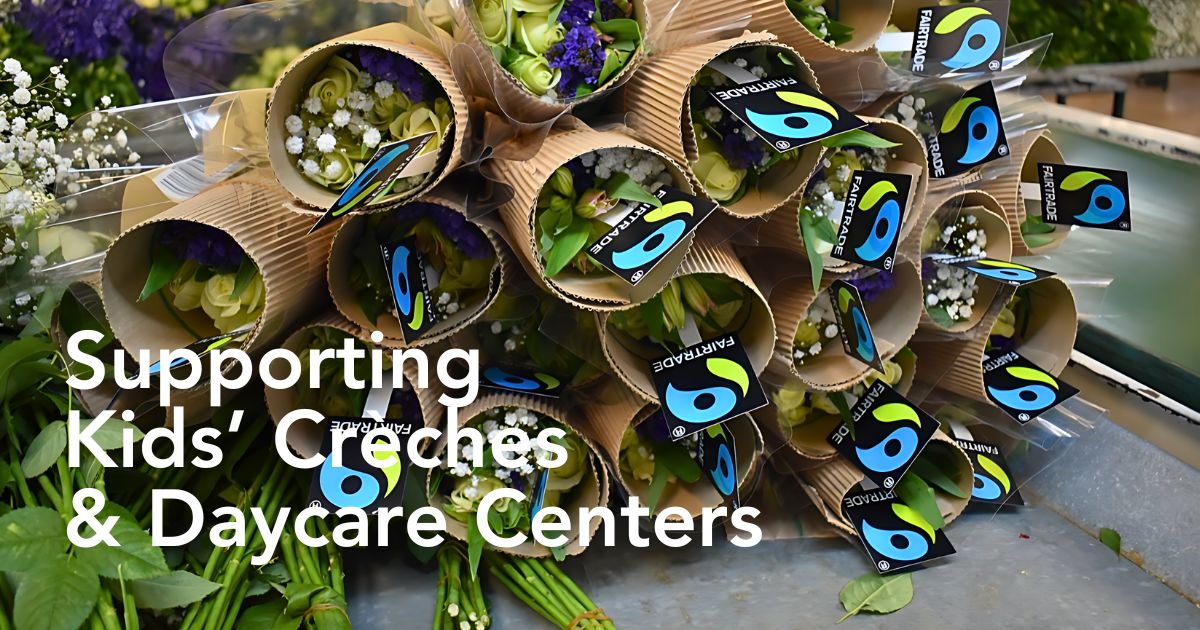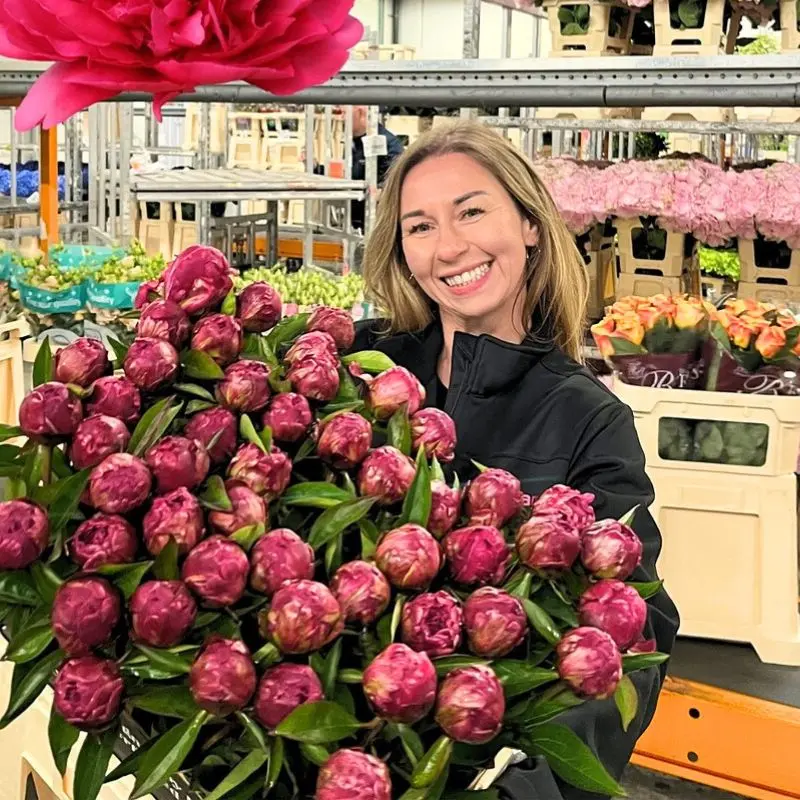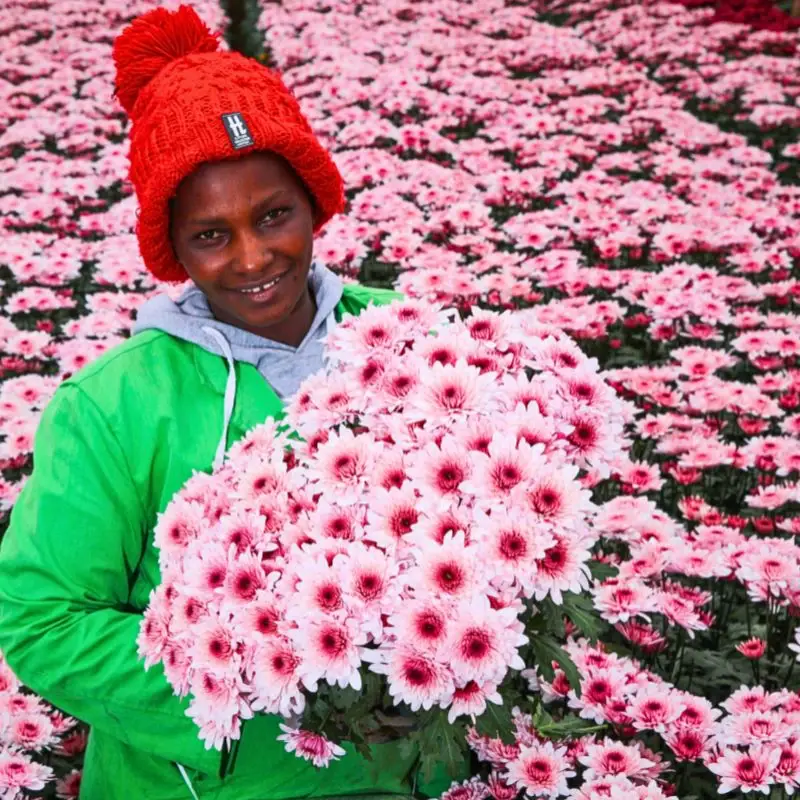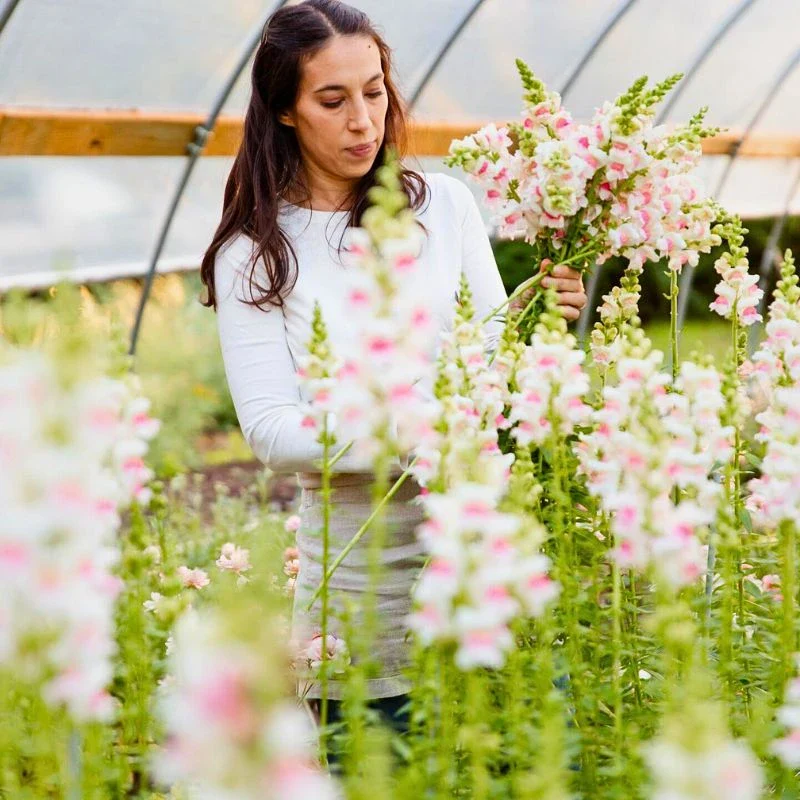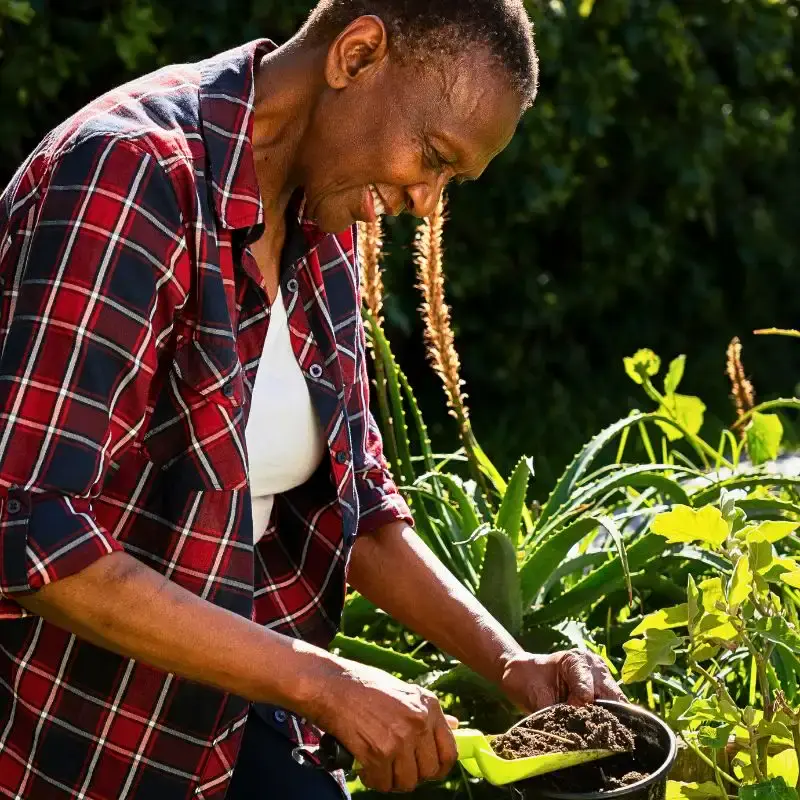A mother wakes up at dawn, prepares her children for the day, and then heads to work in a flower farm, where she works till late afternoon. For many, this daily routine came with quite a burden. Often, these mothers always asked themselves: How will their children spend the day unwatched? Where would their babies stay? Who would feed her toddler? Could she afford decent childcare on her wages?
Across flower farms in Kenya, Ethiopia, Uganda, and many other regions where the flower industry is the community’s mainstay, thousands of women face this impossible choice. They have to balance between earning a living and ensuring their children's safety. But today, Fairtrade Premium investments are changing that story, through crèches and daycare centers within these flower farms.
The Weight of Worry for the Mothers
In Kenya, more than 60% of working mothers in the farming sector struggle to balance childcare and employment. Martha Sifuna knows this anxiety well. When she joined Shalimar Farm in Naivasha in 2022, five months pregnant, her mind raced with questions: "Where would I leave my baby once I resumed work after maternity leave?" she remembers asking herself.
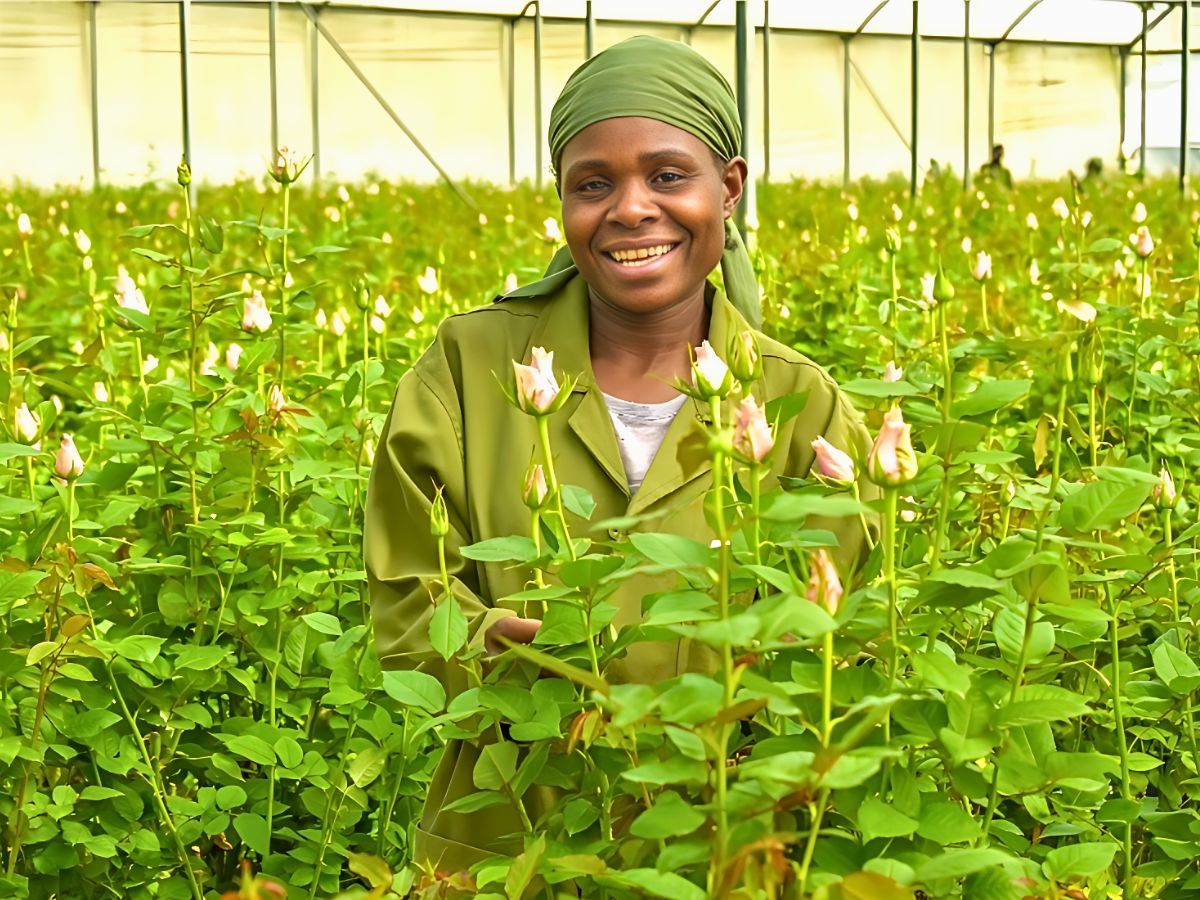
Martha's concerns weren't unfounded. Private childcare facilities near the farm charged up to KSh 2,000 (roughly USD 16) per month, eating into her wages that were already stretched thin by her household needs. Even when mothers could afford it, the quality of care varied wildly, and the distance from work meant they couldn't respond quickly in emergencies.
At Bohemian Flowers in Naivasha, Teresa Wairimu Kinyua faced similar worries as a mother of three. Between school runs, work schedules, and caring for her youngest child, the logistics felt overwhelming. And at Rosebud Limited in Uganda, mothers like Sera Agnes and Amviko Juliet navigated an additional challenge: seeking daily permission to breastfeed their babies, a process that built up stress and sometimes resulted in missed feeding sessions.
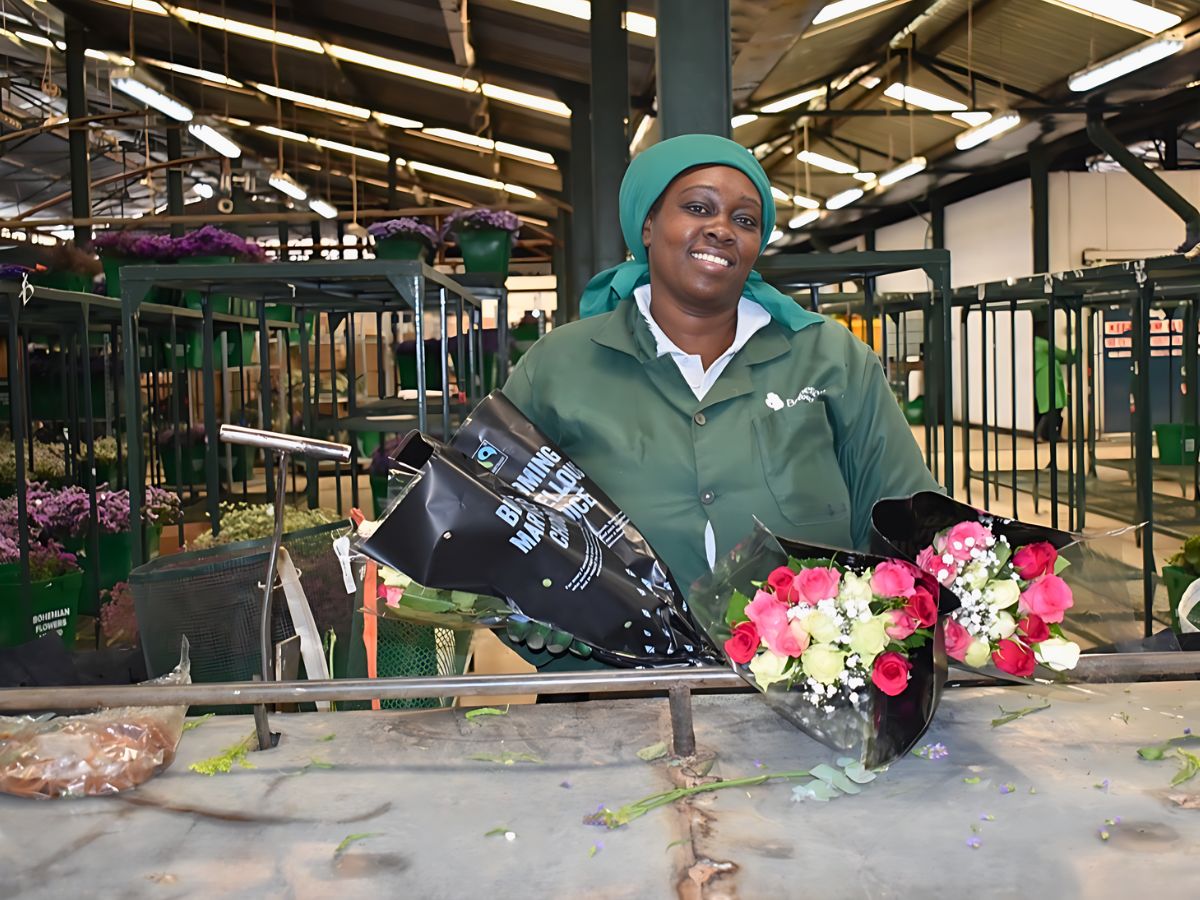
Fairtrade’s Simple Solution With Far-Reaching Impacts
The answer came through Fairtrade Premium funds, money that workers themselves decide how to invest in their communities. Across flower farms in Kenya and Uganda, workers chose to establish daycare centers and support nursing mothers, knowing that when these mothers succeed, their families do, too.
At Shalimar Farm, Martha's colleague introduced her to the on-site daycare. Initially skeptical, Martha asked some essential questions: "What if my baby gets sick? How will I know?" The staff assured her they would contact her directly or reach out to her supervisor in any emergency. That reassurance changed everything.
She enrolled her baby, and two years later, she speaks with pride. Her child is healthy, happy, and even learning to speak. “When I pick him up, he is still playing with the other kids. The attendants even teach them and feed them well.” The cost difference is substantial too. While private facilities charge up to KSh 2,000 monthly, Shalimar's daycare takes just KSh 150 (about USD 1.2) per child, covering meals and care.
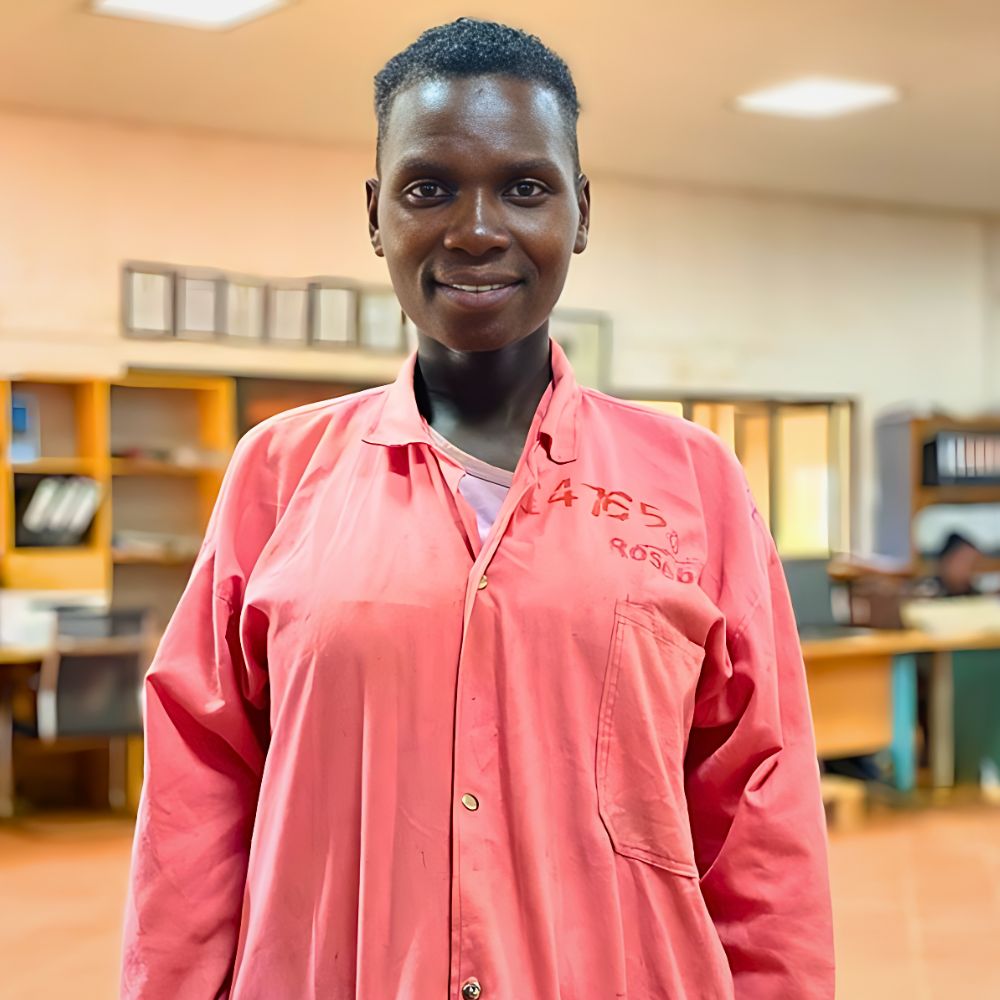
Martha:
"It is a huge relief. It is not just affordable, it is life-changing."
Such is the case for the other facilities across the other flower farms under the Fairtrade Premiums program.
Inside the Walls of the Crèches
At Bohemian Flowers, a small sign at the crèche entrance reads "Toa viatu" (Swahili for take off your shoes). The well-ordered row of tiny and adult-sized shoes outside speaks to the care taken here. A caregiver offers hand sanitizer before entry; hygiene is crucial in this shelter for the little ones.
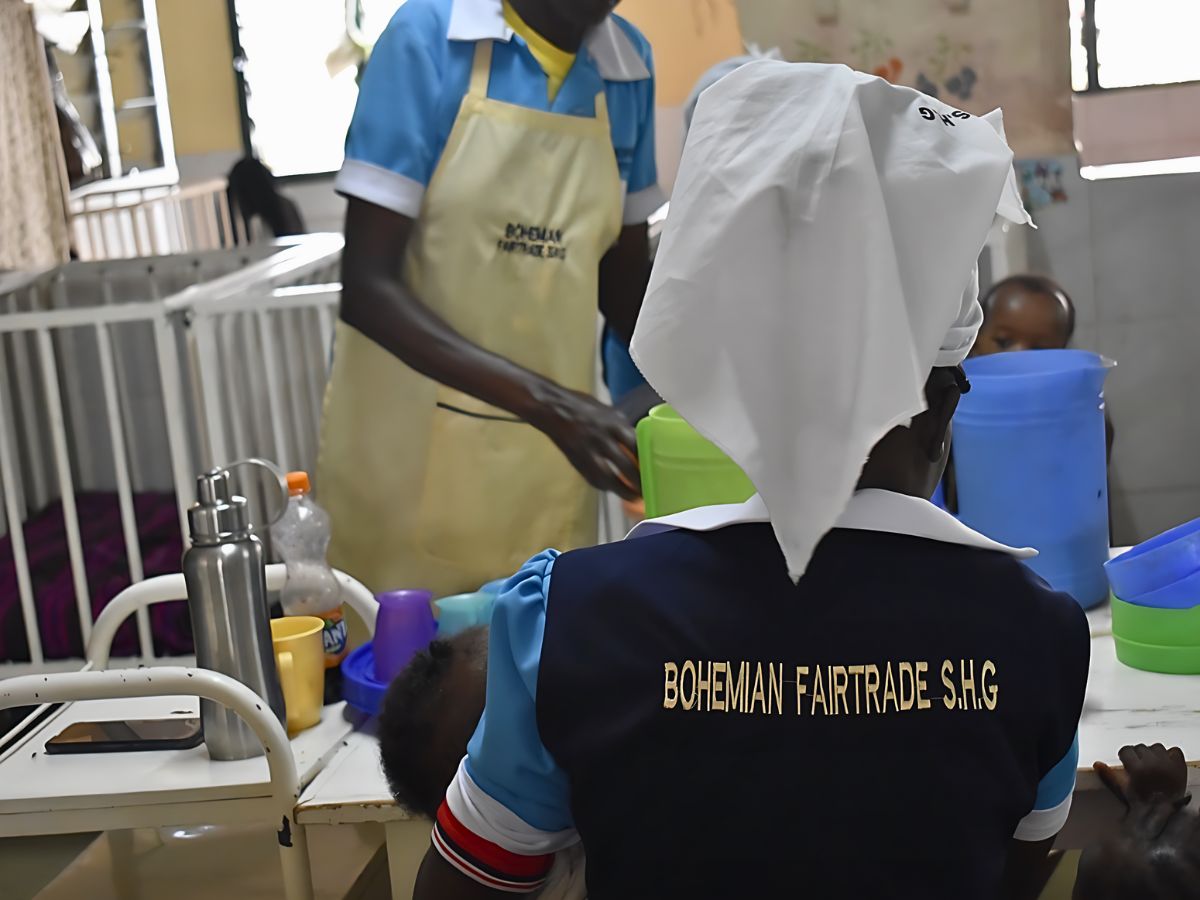
Inside, there are soft lullabies and playful giggles. Among the children are seven-month-old twins Camillo and Camilla, whose mother Winnie works in the grading section. This isn't her first experience with the crèche; her older twins, now in pre-primary school, were also cared for here. With five children to raise, Winnie finds peace knowing her youngest ones are nurtured safely while she works.
The crèche operates with six caregivers and a matron, working in shifts from 5:30 am to 6:30 pm to accommodate different work schedules. They accept infants as young as three months and care for them until age three, when they transition to kindergarten.
Grace, the matron, explains the daily routine. Parents document their child's health status upon arrival. A dedicated chef prepares porridge at 9:00 am and lunch shortly after. If a child falls sick, parents are contacted immediately, and in serious cases, the child is taken to the nearby Oserian Health Centre, with the parent released from work to accompany them.
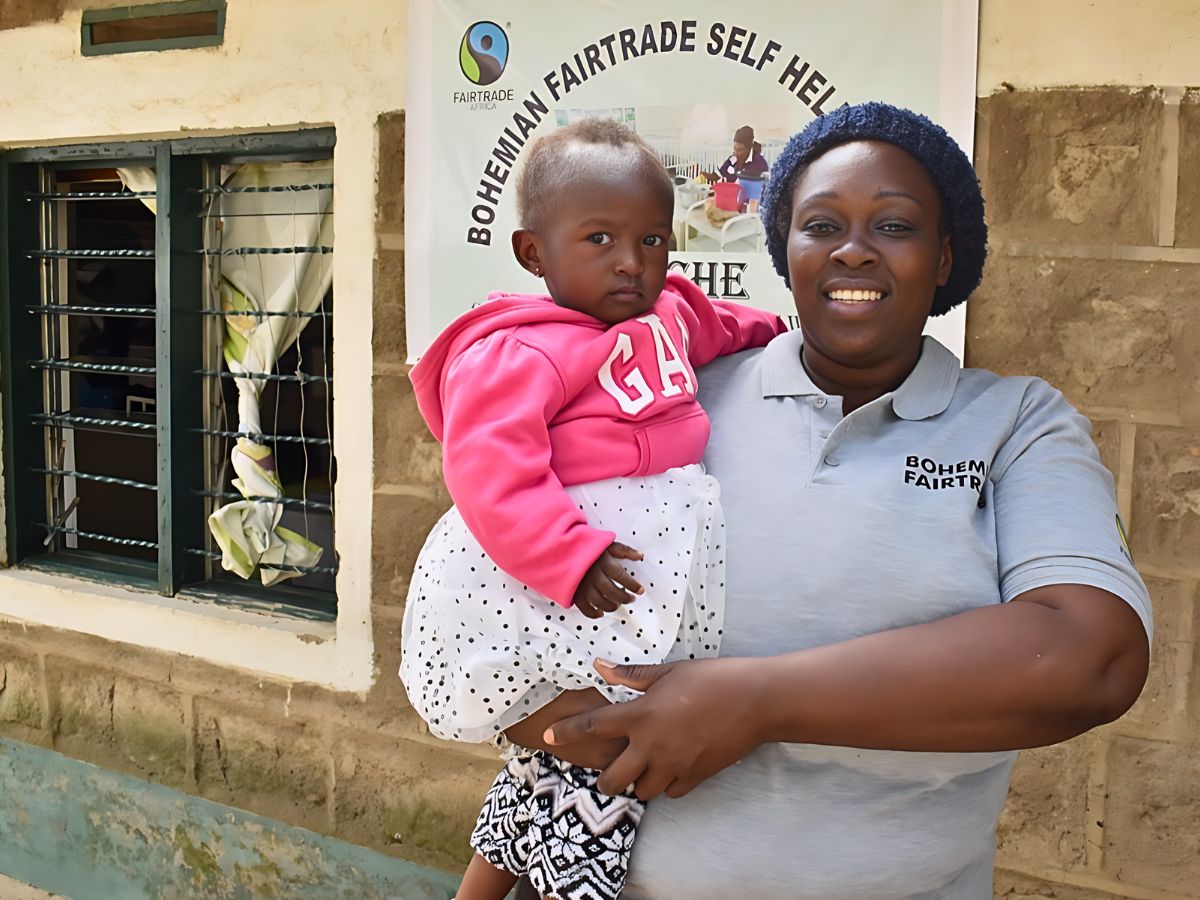
Among the caregivers is a woman who has worked there for over a decade. Though mildly deaf, her understanding of children's needs allows her to provide exceptional care. Her attuned senses mean she hears the faintest cry, ensuring no child goes unattended.
For Teresa, the routine works impeccably. She is responsible for taking her little child to the crèche, and then they sort the napkins, the porridge, and the meals. “My reporting time at work is 9 am, and the crèche closes at 6 pm. I pick my child up at 5:40 pm. At dinner time, she is almost always so well-fed during the day at the crèche, that she doesn’t want anything more to eat.”
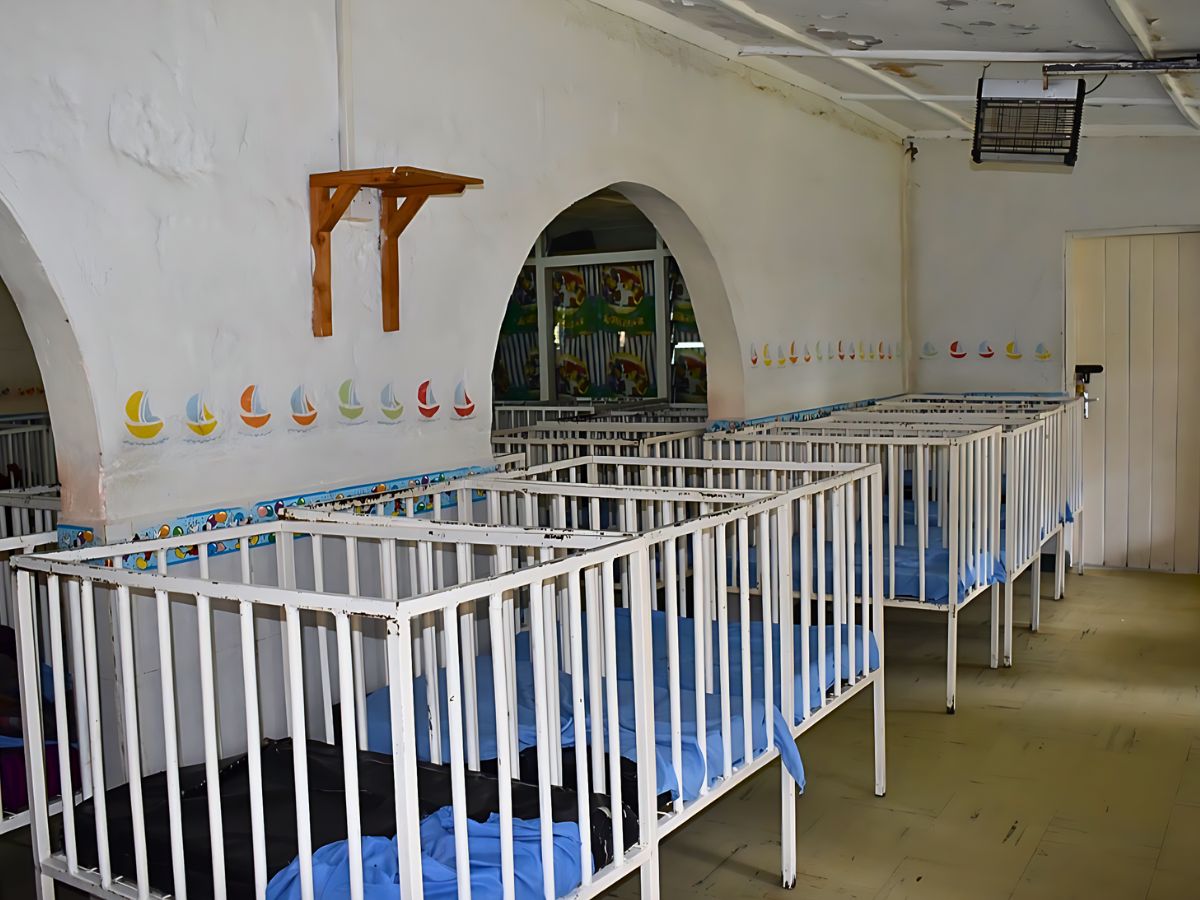
Supporting the Breastfeeding Mothers
At Rosebud Limited in Uganda, the focus is not just on daycare nursing, but also includes checking on the mothers' specific needs. Previously, mothers had to seek daily permission for breastfeeding breaks, causing disruptions and stress. Some mothers even missed days, unable to feed their babies.
Ssemugooma Godfrey, the Human Resource Manager, explains:
"We came up with a Permission Priority Card that is given to all nursing mothers, granting them full permission for a whole year to always go out for breastfeeding for two hours a day without interruption or asking for daily permission from departmental heads and supervisors."
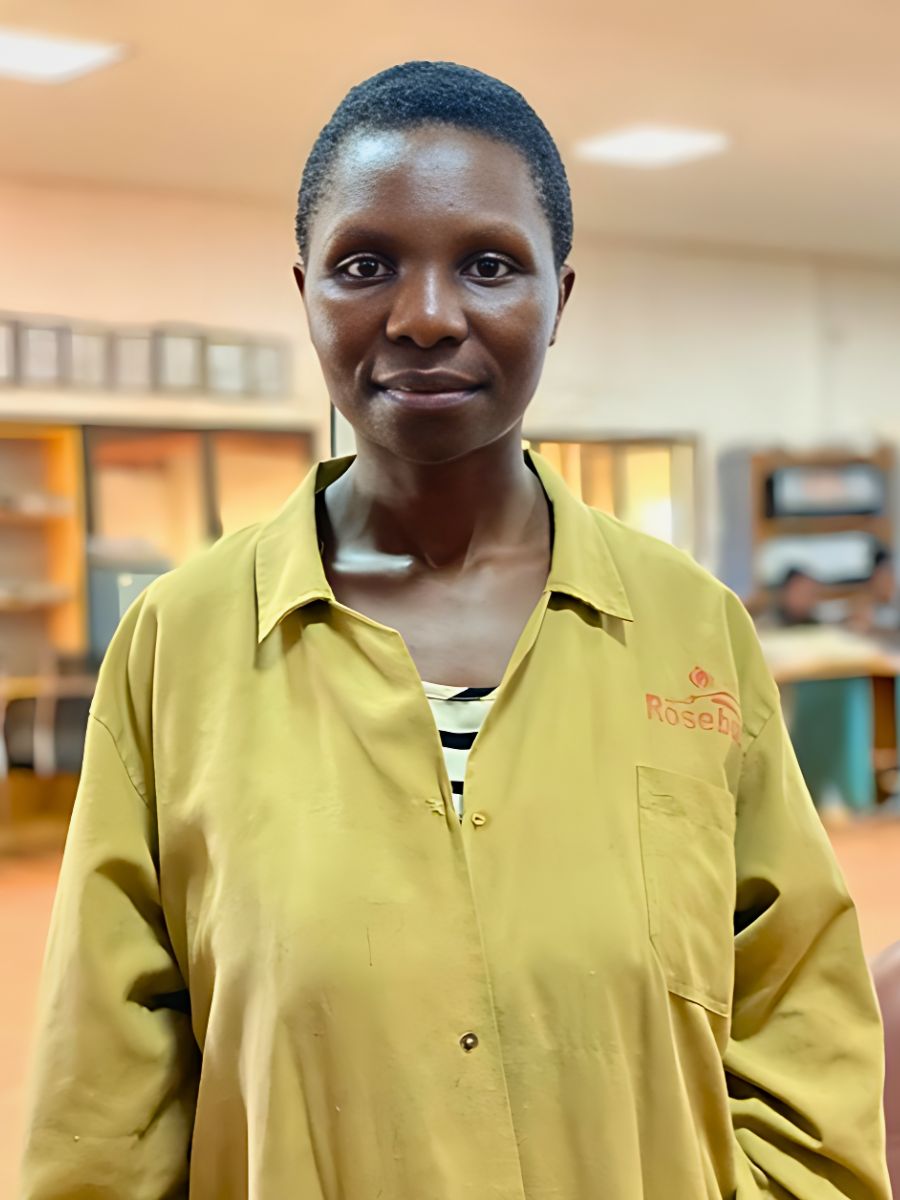
The impact has been noteworthy. Mothers like Sera and Amviko no longer feel burdened by constantly seeking permission. They can focus on their tasks while ensuring they attend to their children's needs without unnecessary hurdles. The cards are valid for one year and can be renewed upon request, and the high renewal rate shows how valued this support has become.
At Bohemian Flowers, nursing mothers receive similar support. On returning from maternity leave, they are granted an additional hour per day to breastfeed their infants until they turn 10 months old. They work seven hours but are paid for eight, allowing them time to nurse their children at the crèche.
Lorin Kimunyu, Bohemian Flowers' Head of Human Resources, explains:
"The parents don't have to worry about safety or nutrition. We currently have 75 children being taken care of at the crèche by trained workers. The parents are at peace, and their productivity has gone up."
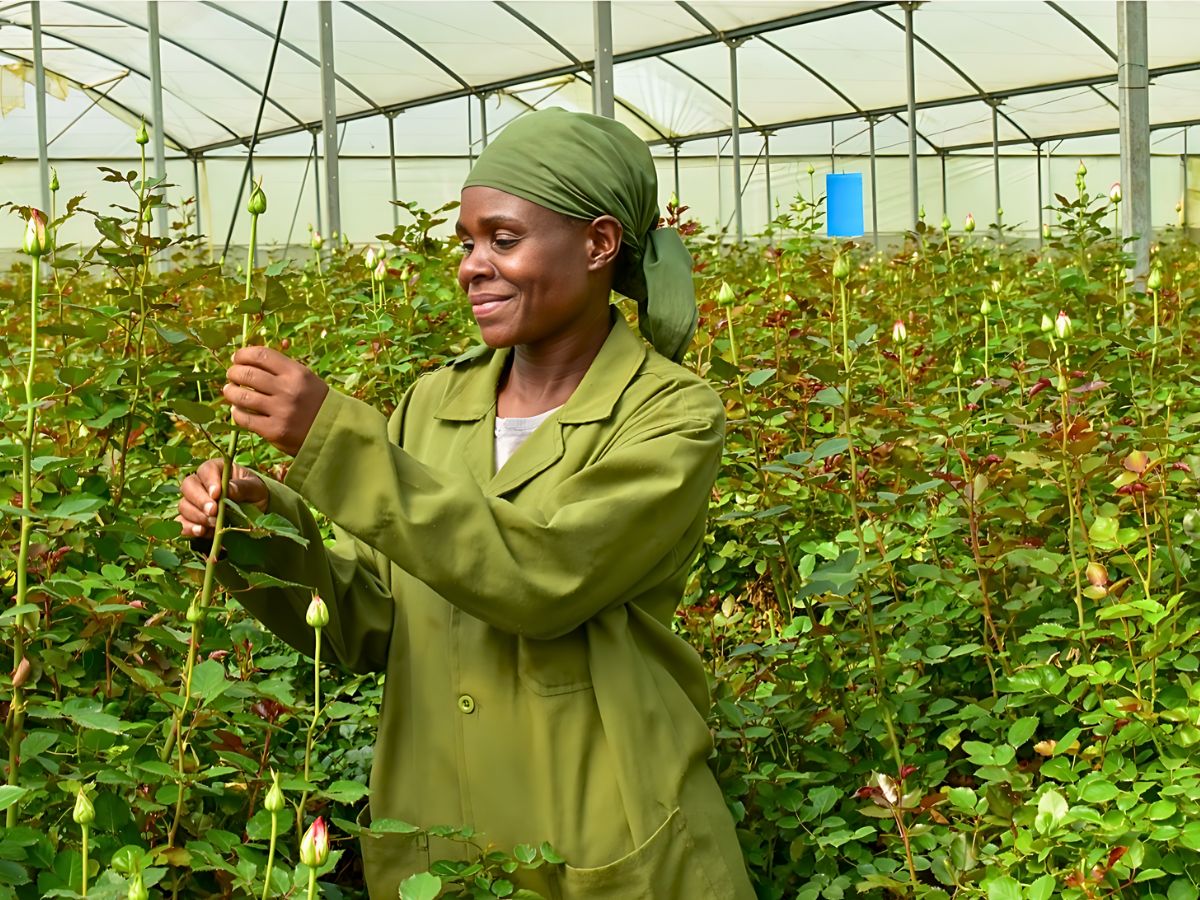
What Have Been the Impacts of These Facilities?
The benefits of these daycares and crèches are much more than just convenience. Teresa notes that the premium investments motivate her to work harder so that the premium goes higher. Her firstborn child benefits from a bursary program, her second child from a school feeding program, and her youngest from the crèche. That is how the Fairtrade Premium touches family’s life. Martha at Shalimar has referred five other mothers to the daycare. One friend who previously struggled with an expensive, inadequate facility now reports that her child is healthier and happier. And the word spreads.
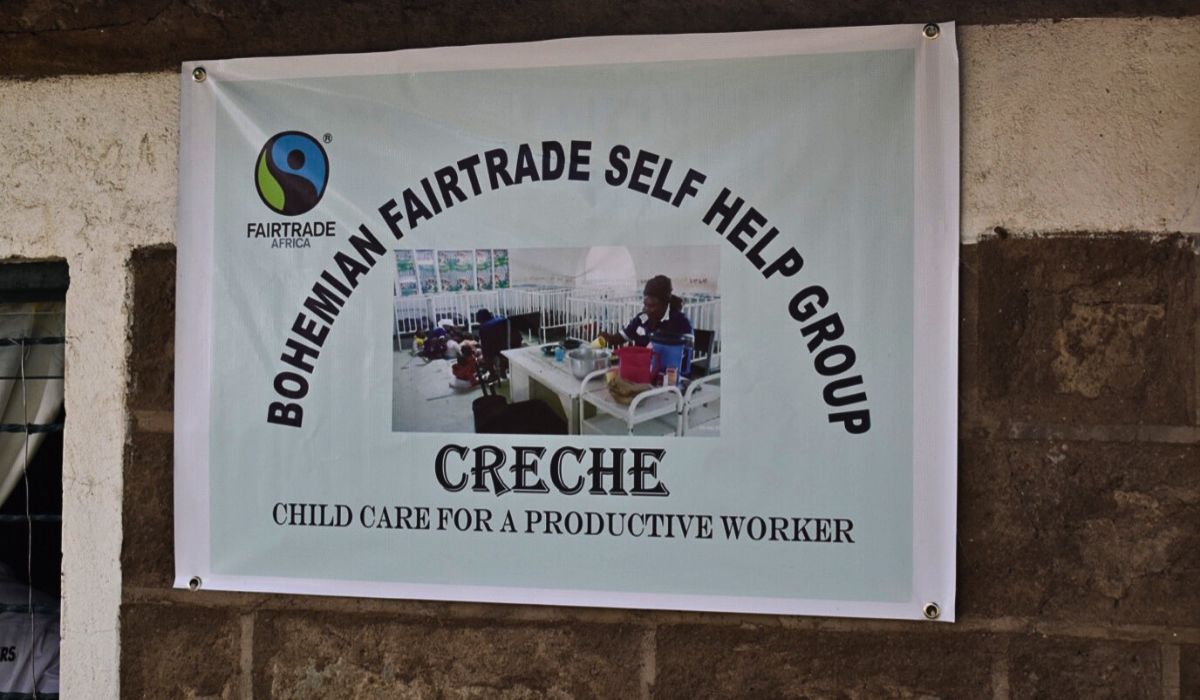
By no means are these the only flower farms touched by these efforts. Of the 66 Fairtrade certified flower farms across Ethiopia, Kenya, and Uganda, 17 have established crèches—13 in Kenya and 4 in Uganda. This initiative shows how the Fairtrade principles influence actual transformation on the ground. Yet, despite the success, there is always room to grow. Martha, for instance, has one earnest request. If possible, she says, more toys could be added for the babies to play with. They are learning so much already, so with more equipment, they could do a lot more.
While this might seem like just a simple request, it does not just express the desire for safety and affordability, but also for environments where children can thrive and flourish. Where learning happens alongside care. Where they can play and have nutrition. And, where mothers can work peacefully knowing that their children are supervised, and also cared for and nurtured.
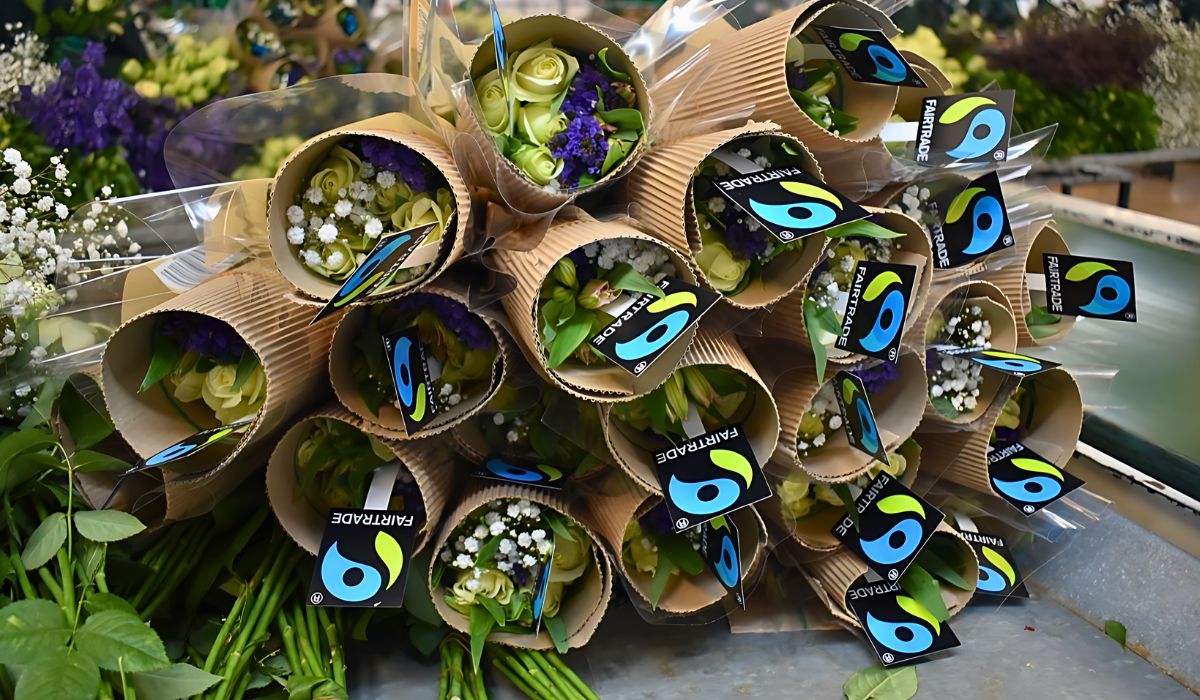
Fairtrade’s Commitment to Promoting Family Friendly Workplaces
Noteworthy is that on farms without on-site day care or crèche facilities, Fairtrade ensures that nursing mothers are supported through flexible working arrangements, granting them 1–2 paid hours each day for breastfeeding. This allows them to either report to work later or leave earlier until their child is at least 9 to 10 months old.
This provision, anchored in the Fairtrade Standards and reinforced through farm or industry Collective Bargaining Agreements (CBAs), reflects Fairtrade’s commitment to promoting family friendly workplaces and the wellbeing of working mothers.
Photos are by Fairtrade Africa.

